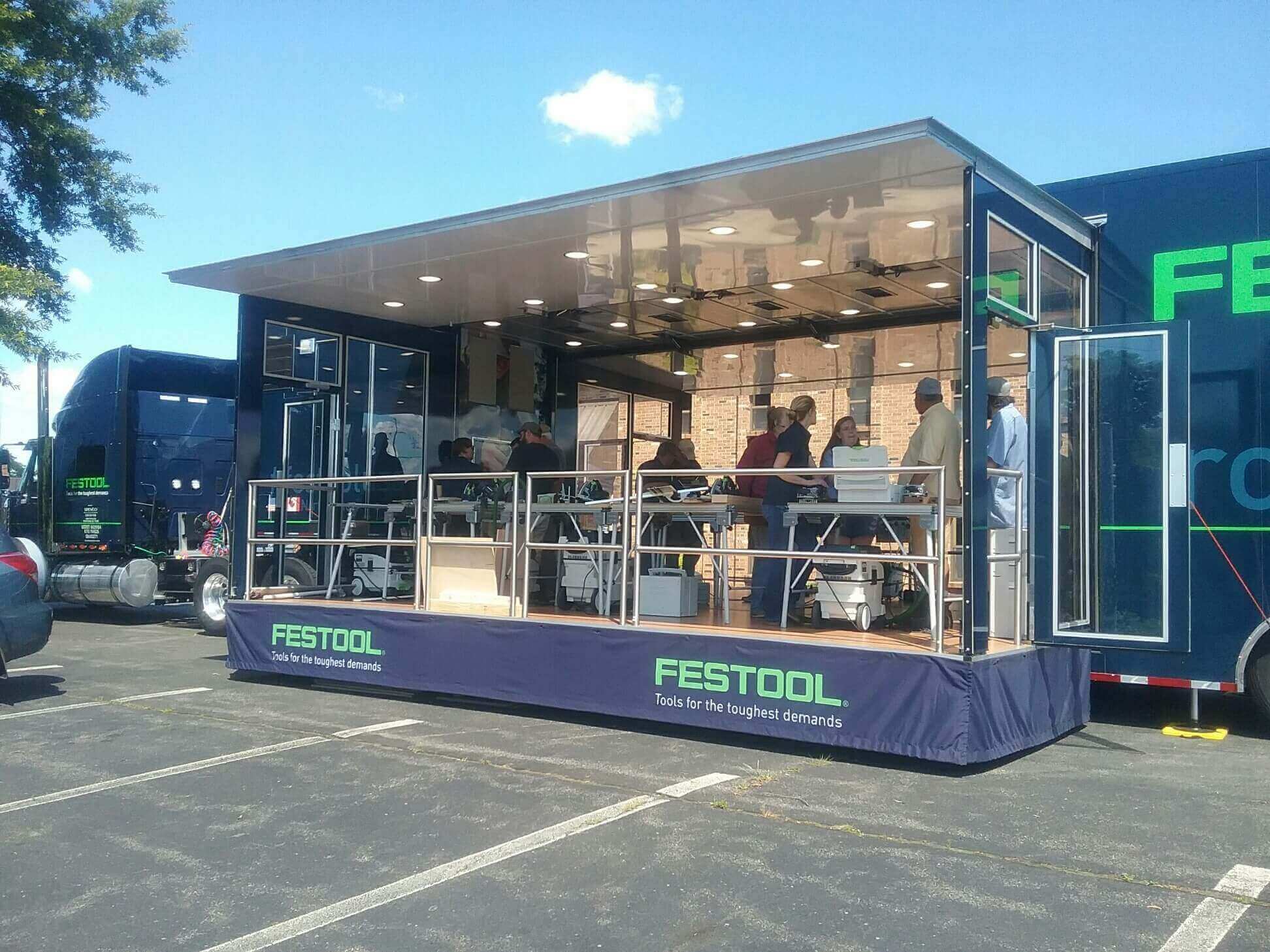Experiential marketing events are incredibly effective at creating lasting relationships with consumers. But are roadshows right for every brand? Before diving into developing an experiential marketing program or specialty vehicle, here are 9 questions to ask yourself to help you decide if an experiential marketing vehicle is right for your brand.
1. Do I have the budget to invest?
Creating an experiential marketing vehicle is a significant investment, with development costs varying widely. For instance, small “off the shelf” trailers that can be lightly customized tend to run from $5K to $25K. On the other end of the spectrum are large 40-to 53-ft custom trailers that are designed and built from the wheels up for heavy-duty, multi-year tours. Depending on the design, build quality and materials, it’s an investment more in the $500K to $750K range.
This leaves a lot of room in between for different sizes and types of vehicles.
The budget should also take into account the logistics and operational costs involved. Transporting, setting up, staffing, taking down, and doing it all over again — it can be done efficiently and effectively with the right partner. But there are costs.
2. What are my objectives?
Experiential marketing programs can be fantastic experiences for audiences. However, the program needs to serve your overall marketing objectives in order to connect that experience with your brand in the minds and hearts of that audience. If it seems like an outlier to your marketing strategy, you might need to map out how it would integrate with other tactics in your plan before moving forward. It will make answering many of the other questions much easier.
3. Where would I utilize my vehicle or program?
Essentially, there needs to be a context for your program or vehicle that will allow you to reach or attract a large enough number of your target audience. Are you creating your own context with a tour or stand-alone event? Are you leveraging an event or tour that already exists? The answers can help you determine whether an experiential marketing vehicle is what you need.
4. Are my competitors doing experiential marketing?
As is often the case, a look at what your competitors are doing can be a good indication as to whether experiential marketing should be in the mix for your brand. However, there are no absolutes here. If you know your competitors well, you know whether you’re in a position to break new ground or follow suit.
5. Do I need to demonstrate a new product or innovation?
In many different industries, product demonstration can make for a powerful, engaging experience if done correctly and in keeping with the brand. Hands-on, interactive roadshows can help improve relationships with influencers, bringing them into the realm of brand ambassadors. Especially among very specific categories (tools, technology, etc.) and target markets, a product demonstration roadshow makes sense.
6. What would be my key performance indicators?
In other words, how would you measure your roadshow’s success? What do you realistically have to gain in customer information, awareness, sales leads, etc.? After all, experiential marketing vehicle is a front-line tool for engaging your audience. Identifying your KPIs can help you decide if the potential ROI is right for your brand.
7. How many events do you have in mind?
Admittedly, answering this question is more about deciding what type of experiential marketing platform to use. But it can help you get a rough idea of whether you are up for the investment. Creating and operating a multi-year tour has quite different cost implications than a single season of select venues.
8. Do I have the people/resources to manage the event?
Despite all of the flat screens, VR simulators, games and displays, the most valuable point in an experiential marketing program is the one-to-one contact between your people and your customers. The humanizing of your brand is an essential part of the experiential marketing. However, this doesn’t mean you need to have a fleet of roadshow reps on your payroll. Experiential marketing partners can help you find the right people to represent your brand and manage the logistics as well.
The answer to this question shouldn’t stop at the event. Long ago, there was a CPG company that developed amazingly interactive events (before the term “experiential marketing” was a thing) that generated boxes full of customer responses. However, the marketing department simply did not have the people or resources needed to follow through with those customers to keep the engagement going. So, it’s helpful to think about, for example, how your marketing and sales personnel will handle an influx of new leads.
9. Do I have time to make this happen?
Aside from “how much?” this question is the one that most marketers who are new to experiential marketing have trouble getting their heads around. Keep in mind that while just about everything is possible, it’s not all possible right away. And to do it right, it helps to look as far ahead as possible. Need a massive, custom roadshow designed, built and deployed in time for the college football season? Let’s start in February, not August. Need a small custom trailer for a series of tradeshows next spring? You’ll need to review designs in the fall.
For many of these questions, it helps to have an experienced partner to lean on for insight into things like costs and timelines. Talk with one of our experts to get more information. We’re happy to help you get the answers you need to make the right decision for your brand.
While many of the articles in this series relate to different vehicle projects, if you are interested in developing a specific vehicle for training, mobile medical, or industrial needs, please contact our team directly.
Need to share this post on LinkedIn? We've even created the post for you!
“How do I know if experiential marketing is right for my brand?” The team at SPEVCO gets this question all the time. In this article, they’ve come up with a set of the most important questions you should ask yourself before you decide.
#mobileexhibits #marketing #experientialmarketing #SPEVCO #specialvehicles





